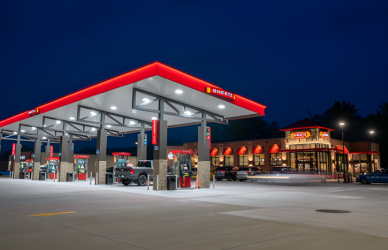A research team at the University of Massachusetts-Amherst has recently been granted nearly $2 million to investigate the potential implications of automation on the responsibilities of American long-haul truckers.
Led by Shannon Roberts, an associate professor of mechanical and industrial engineering, the interdisciplinary group aims to understand better how advances in technology may shape the future of trucking and transportation.
This funding, provided by the National Science Foundation’s Future of Work Program, will support their research efforts over the span of four years.
“We know that when automation is introduced into trucks, it changes the role of a trucker,” Roberts said. “The question we are asking is: How do we examine and improve upon the future of work in long-haul trucking not by focusing on technology development, but rather by focusing on the trucker?”
Advancements in automation have the potential to bring numerous advantages, such as reducing accidents and improving overall efficiency; however, experts emphasize that completely eliminating human involvement is not the solution.
“Technology is good at handling consistent situations with predictable, rational people,” Roberts said. “But humans are not predictable, rational beings. Because of this, technology will not be able to react to everything that might happen on the road. It’s impossible. We will need a person in the truck.”
At the same time, automation can’t make workers feel expendable.
“People take pride in what they do,” Roberts said. “We don’t want to take everything out of that job such that people are unsatisfied and unhappy. Many people get into trucking as a means to move into the middle-class lifestyle with a high school diploma or a GED. It’s a means of betterment for a large chunk of the population.”
Ultimately, Roberts said her questions lead to a topic she calls the human-truck symbiosis.
“How do we take advantage of all the things that people are good at doing and all the things that technology is good at doing to make sure we have a system that works really well?” Roberts said.
The research team also includes Henry Renski (regional planning), Shlomo Zilberstein (computer science), Michael Knodler (civil engineering), and Robin Riessman (UMass Transportation Center), who will be conducting the study. They will gather information by accompanying truckers on their journeys, involving truckers in the design process, and analyzing workforce development.
Source: CCJ Digital











